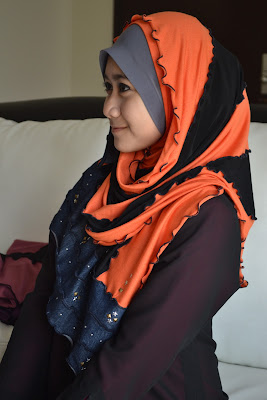
Dalam Islam, tudung atau kerudung merupakan pakaian yang digunakan untuk menutup bahagian kepala seorang wanita. Bertudung adalah perintah Allah kepada setiap wanita Islam. Setelah seseorang wanita memeluk Islam maka wajib baginya bertudung sebagai sebahagian dari menutup aurat. Sementara kerudung sendiri di dalam al-Qur'an disebut dengan istilah khumur, sebagaimana terdapat pada surah An-Nuur ayat 31: "Hendaklah mereka menutupkan khumur (kerudung-nya) ke dadanya." Darjah pemakaian tudung berbeza-beza mengikut tempat.
- Di sesetengah negara Arab, pemakaian tudung (atau salah satu keluarganya) diwajibkan. Di sesetengah negara lain pula, ia tidak diwajibkan, tetapi merupakan adat masyarakat.
- Di sesetengah tempat seperti di rantau Asia Tenggara, tudung dilihat sebagai pilihan peribadi. Ia merupakan hak wanita itu sendiri untuk memakainya atau tidak.
- Di sesetengah tempat lain pula, terutamanya di Dunia Barat, terdapat larangan untuk memakai tudung di tempat-tempat tertentu.
Fesyen dan jenis tudung juga berbeza-beza mengikut adab setempat:
- Burqa menutup seluruh badan manakala niqab menutup seluruh kepada.
- Tudung labuh atau mini telekung.
- Tudung bersegi seperti tudung bawal.
- Tudung sarung atau tudung mini.
- Selendang.
- Skarf.
The Arabic word
jilbab is translated as "cloak" in the following passage. Contemporary
salafis insist that the
jilbab (which is worn over the Kimaar and covers from the head to the toe) worn today is the same garment mentioned in the Qur'an and the
hadith; other translators have chosen to use less specific terms:
- Narrated Anas ibn Malik: "I know (about) the Hijab (the order of veiling of women) more than anybody else. Ubay ibn Ka'b used to ask me about it. Allah's Apostle became the bridegroom of Zaynab bint Jahsh whom he married at Medina. After the sun had risen high in the sky, the Prophet invited the people to a meal. Allah's Apostle remained sitting and some people remained sitting with him after the other guests had left. Then Allah's Apostle got up and went away, and I too, followed him till he reached the door of 'Aisha's room. Then he thought that the people must have left the place by then, so he returned and I also returned with him. Behold, the people were still sitting at their places. So he went back again for the second time, and I went along with him too. When we reached the door of 'Aisha's room, he returned and I also returned with him to see that the people had left. Thereupon the Prophet hung a curtain between me and him and the Verse regarding the order for (veiling of women) Hijab was revealed." Sahih al-Bukhari, 7:65:375, Sahih Muslim, 8:3334
- Narrated Umm Salama Hind bint Abi Umayya, Ummul Mu'minin: "When the verse 'That they should cast their outer garments over their persons' was revealed, the women of Ansar came out as if they had crows hanging down over their heads by wearing outer garments." 32:4090. Abū Dawud classed this hadith as authentic.
- Narrated Safiya bint Shaiba: "Aisha used to say: 'When (the Verse): "They should draw their veils (Khumur) over their necks and bosoms (juyyub)," was revealed, (the ladies) cut their waist sheets at the edges and covered their faces with the cut pieces.'" Sahih al-Bukhari, 6:60:282, 32:4091.






























